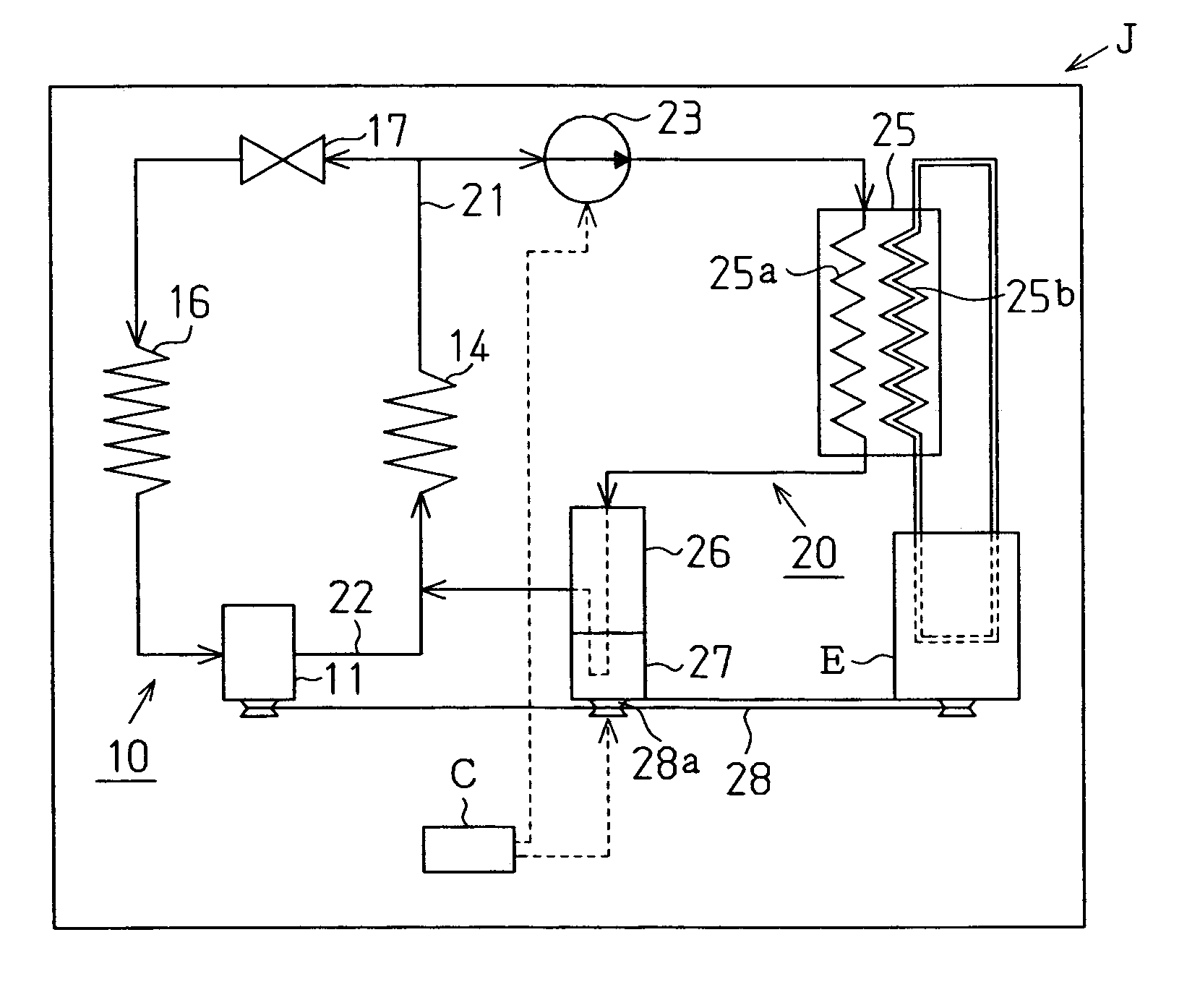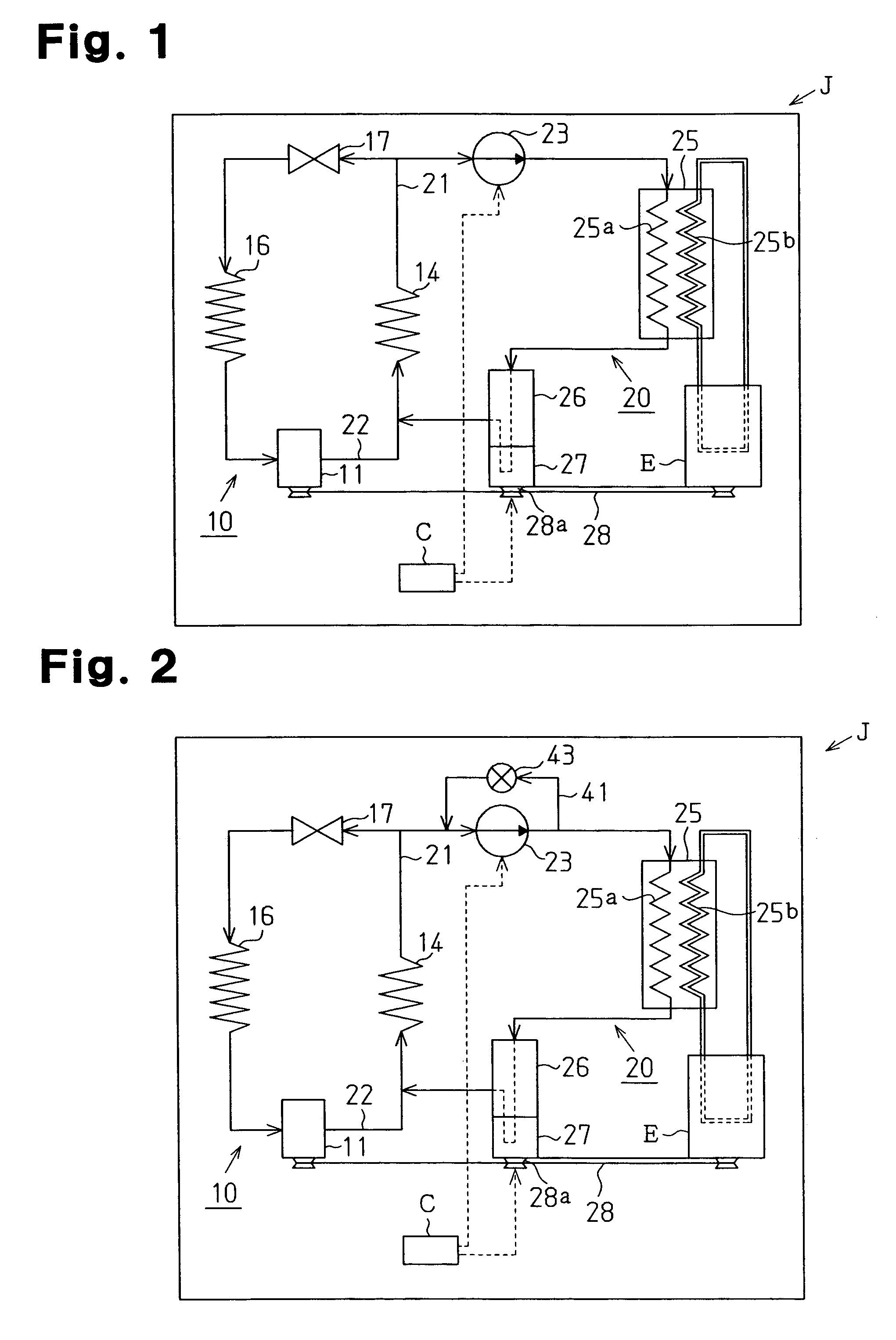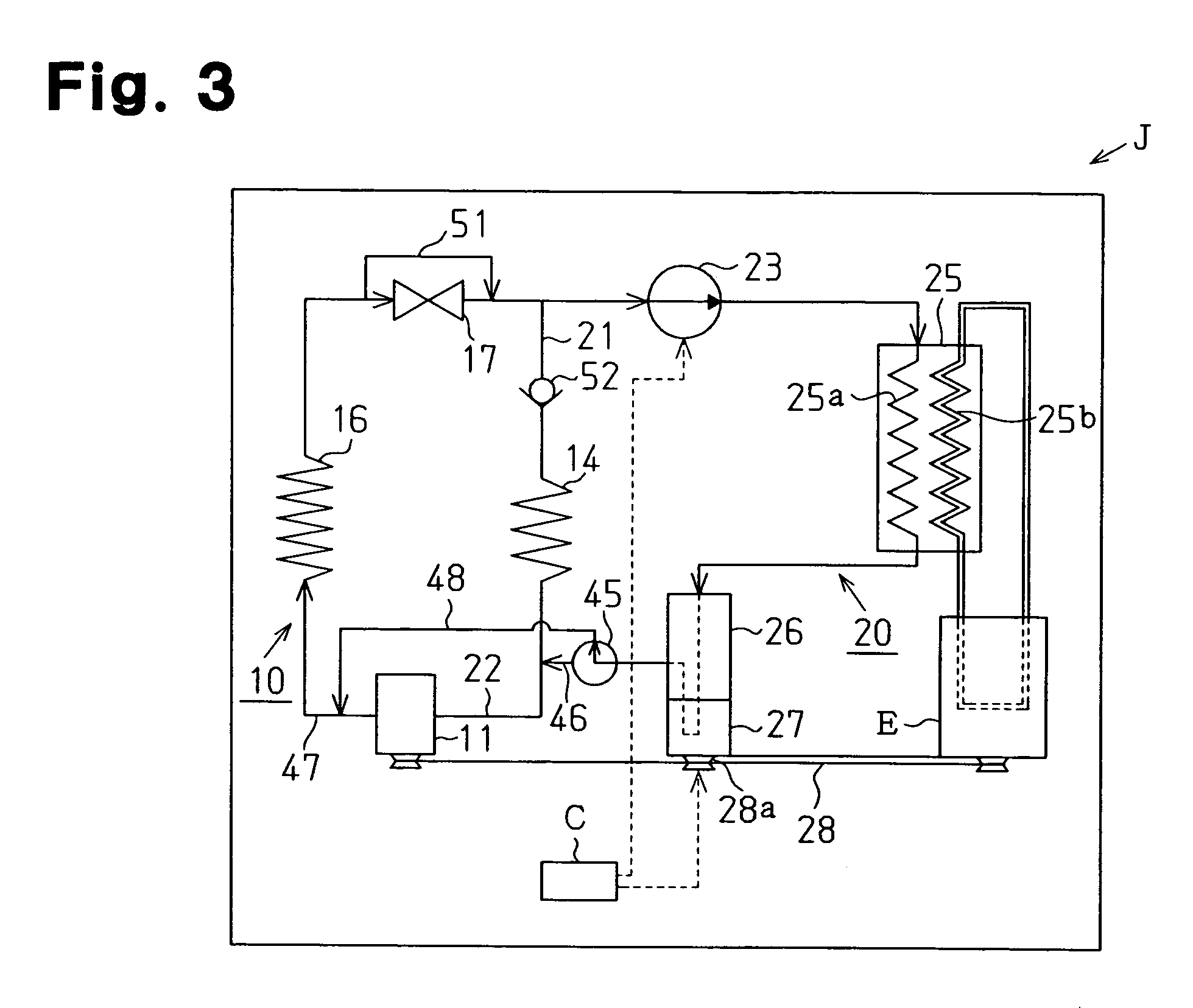Vehicle exhaust heat recovery system
a vehicle exhaust and heat recovery technology, applied in the direction of machines/engines, machine operation modes, lighting and heating apparatus, etc., can solve the problems of low energy conversion efficiency, driving the turbine by means of the coolant water of the internal combustion engine, and vehicle exhaust heat recovery systems, etc., to achieve excellent energy conversion efficiency and small size
- Summary
- Abstract
- Description
- Claims
- Application Information
AI Technical Summary
Benefits of technology
Problems solved by technology
Method used
Image
Examples
Embodiment Construction
[0016]An embodiment of the vehicle exhaust heat recovery system of the present invention is described below.
[0017]Referring to FIG. 1, an air conditioning system provided in a vehicle J includes a refrigeration circuit 10 of a vapor compression type. As the refrigerant of the refrigeration circuit 10, for example, Freon or carbon hydride can be used. The refrigeration circuit 10 comprises a cooler 14, an expansion valve 17 and an evaporator 16. The compressor 11 is driven by an internal combustion engine (hereinafter referred to as an “engine”) E that is provided as a drive source for the vehicle J, and performs compression of the refrigerant gas. The refrigerant gas discharged from the compressor 11 and having high temperature and high pressure is cooled by the cooler 14. The refrigerant from the cooler 14 is decompressed by the expansion valve 17 which functions as a decompression device. The refrigerant from the expansion valve 17 is heated by the evaporator 16. The refrigerant, ...
PUM
 Login to View More
Login to View More Abstract
Description
Claims
Application Information
 Login to View More
Login to View More - R&D
- Intellectual Property
- Life Sciences
- Materials
- Tech Scout
- Unparalleled Data Quality
- Higher Quality Content
- 60% Fewer Hallucinations
Browse by: Latest US Patents, China's latest patents, Technical Efficacy Thesaurus, Application Domain, Technology Topic, Popular Technical Reports.
© 2025 PatSnap. All rights reserved.Legal|Privacy policy|Modern Slavery Act Transparency Statement|Sitemap|About US| Contact US: help@patsnap.com



